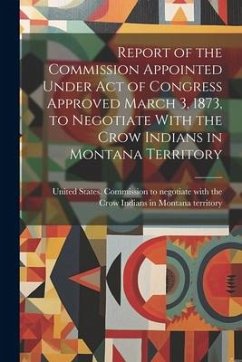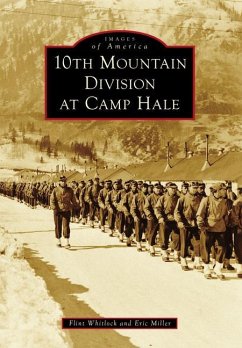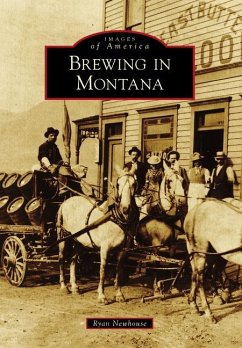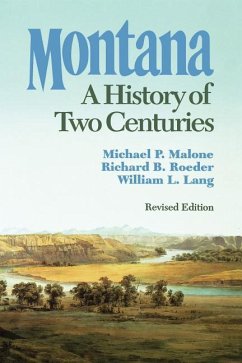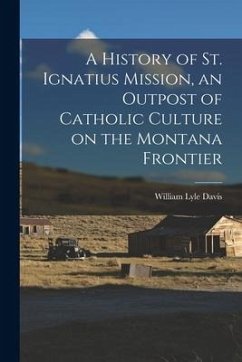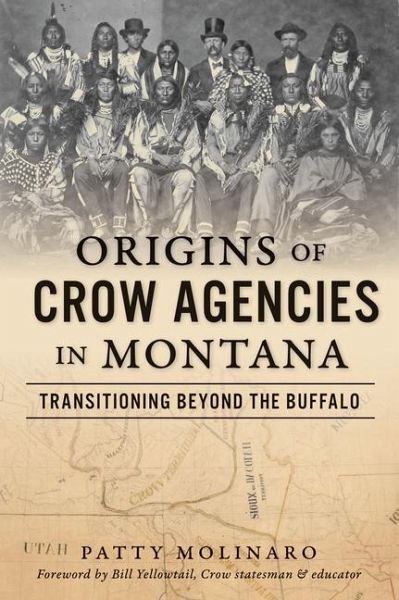
Origins of Crow Agencies in Montana
Transitioning Beyond the Buffalo
Versandkostenfrei!
Versandfertig in über 4 Wochen
19,99 €
inkl. MwSt.

PAYBACK Punkte
10 °P sammeln!
"We do not know how to commence farming, but we are all willing to try ."--Crow leader Iron Bull On May 7, 1868, the Treaty of Fort Laramie forever altered the Crow way of life, defining reservation boundaries and establishing a federal agency. Initially stationed at Fort Parker in 1869, the agency headquarters was later moved to Absaroka in 1875. These early agencies faced numerous challenges including the rapid westward expansion, violations of the treaty, land negotiations, railroad construction, educational obstacles, and a dwindling buffalo population. This situation necessitated the Crow...
"We do not know how to commence farming, but we are all willing to try ."--Crow leader Iron Bull On May 7, 1868, the Treaty of Fort Laramie forever altered the Crow way of life, defining reservation boundaries and establishing a federal agency. Initially stationed at Fort Parker in 1869, the agency headquarters was later moved to Absaroka in 1875. These early agencies faced numerous challenges including the rapid westward expansion, violations of the treaty, land negotiations, railroad construction, educational obstacles, and a dwindling buffalo population. This situation necessitated the Crows to adopt farming, thought idyllic for transitioning them into American society. Faced with hunger and new struggles of subsistence, Crow leaders chose to adapt the skills necessary to sustain their tribe. Author Patty Molinaro recounts the shifting boundaries and historic pivotal period for the Crow nation.



